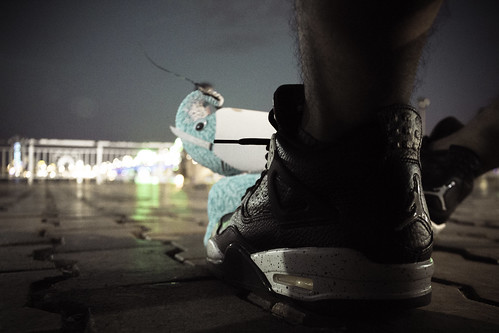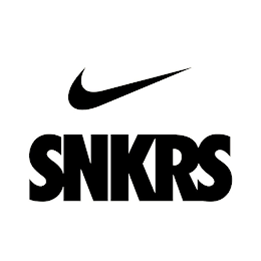The TTAB Finds the Mark SNKRS Registrable for Online Sales of … Sneakers
SNKRS #SNKRS

After a trademark Examining Attorney issued a refusal to register, Nike appealed and was able to convince the Trademark Trial and Appeal Board (the “TTAB”) that SNKRS, the name given to an online marketplace and platform for Nike’s sneaker products, is registrable.

Mark from TSDR #88981748
SNKRS—the phonetic equivalent of “sneakers”—was initially rejected because it was deemed to be generic and merely descriptive of the applied-for goods and services.
Generic Trademarks
A trademark is generic and not entitled to registration when the relevant public uses or understands the term to refer to a type or category of goods or services.
In support of registration, Nike presented numerous online sources of its use of SNKRS and other evidence of how the public perceives the mark as referring to a brand and not the generic term “sneakers.” Such evidence included articles discussing Nike’s use of SNKRS as a trademark, and emphasized the fact that none of the articles used the SNKRS trademark and the word “sneakers” interchangeably.
In addition, Nike offered survey evidence where participants were asked to determine whether certain terms were common names or brand names for a product. For example, terms like GENERAL MILLS, TOYOTA, NATURE MADE, and IPHONE are brand names, whereas terms like BREAKFAST CEREAL, CAR, VITAMINS, and SMARTPHONE are common (generic) names. Of the 300 who participated in Nike’s survey, 62% of respondents found SNKRS to be a brand name, compared to 26% who believed SNKRS to be a common name. Based on these results, Nike argued SNKRS is primarily perceived as a brand name, not a generic term.
Although the Examining Attorney did not find Nike’s evidence to be persuasive, the TTAB sided with Nike. While the TTAB criticized the survey evidence offered, it placed great weight on the significance of consumer perception and interpretation of trademarks that are phonetic equivalents of generic words. Nike also pointed to examples of other marks that are phonetic equivalents of words, such as TUMBLR, FLICKR, SCRIBD, and GRINDR, to demonstrate how many trendy “disemvoweled” words are not considered generic marks. However, Nike and the TTAB failed to distinguish these terms, which are catchy one-word terms suggestive of their underlying services, from SNKRS, which is literally interpreted as “sneakers,” for sneaker goods and services.
Ultimately, the TTAB ruled that the Examining Attorney failed to meet the “substantial burden” of establishing SNKRS as generic in light of Nike’s third-party evidence showing that the relevant consuming public perceives the mark as a brand name.
Merely Descriptive Trademarks & Distinctiveness
The Examining Attorney also refused the SNKRS trademark, finding it merely descriptive. A descriptive mark is not registrable if it conveys only a feature, quality, or characteristic of the underlying goods or services. However, initial refusal of a mark as “merely descriptive” does not always prevent federal registration. An applicant can overcome a descriptiveness refusal by arguing the mark is not descriptive, but rather is suggestive, or as in this case, that the descriptive mark has acquired distinctiveness in the eyes of the consuming public. Suggestive marks differ from descriptive marks because they require consumers to take a mental leap to connect the mark to the product or service. For example, MICROSOFT suggests software for small computers.
In this case, Nike attempted to obviate the Examining Attorney’s refusal by claiming that SNKRS acquired distinctiveness based on its use of the mark for more than five years. Given the extensive advertising and media coverage offered by Nike, combined with the number of sales on the SNKRS platform, the TTAB decided that the descriptive term SNKRS had acquired distinctiveness. Specifically, the TTAB found the SNKRS mark has been used extensively in connection with the online marketplace and online retail services on the platform in outlets such as Google, YouTube, Apple Search Ads, and Twitter. This activity, along with the millions of sales that have taken place via the platform since the first use of the mark in 2015, convinced the TTAB to allow SNKRS to proceed to registration.
Ben thanks Sajani Patel, a summer associate with Norris McLaughlin, P.A., for her contributions to this blog.
©2023 Norris McLaughlin P.A., All Rights ReservedNational Law Review, Volume XIII, Number 223